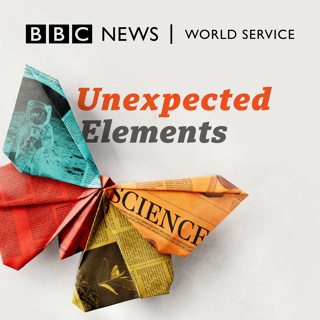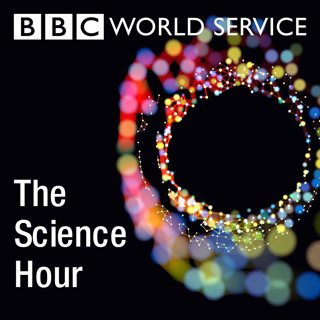
The only one
The Olympics is all about flying the flag for your home country, shoulder to shoulder with your team-mates. But what if you have no team-mates? At this year’s Olympic games, four countries had just one competitor. Like Sean Gill from Belize, Somalian runner Ali Idow Hassan, or Romano Püntener, a mountain-biker representing Liechtenstein.This got us thinking about the only one. The panel discuss what it must be like to be an ‘Endling’ – the last remaining animal of an otherwise extinct species, and wonder if there might be ways to bring them back. We delve into the intriguing psychology behind the urge to collect things, why collectors are so entranced by rare items, and how the psychological pull of ‘exclusivity’ and ‘limited editions’ can make us vulnerable to marketing scams.And what about a baby, born of only one parent? A ‘virgin birth’ – a miracle perhaps? Not so, as we discover that females giving birth without any help from males is surprisingly common. It is called Parthenogenesis, and although humans cannot do it, a dizzying array of animals can. Alexis Sperling from the University of Cambridge explains the science.News montage sources: Channel 5 Belize, BBC NewsPresenter: Marnie Chesterton with Chhavi Sachdev and Andrada Fiscutean Producer: Emily Knight with Florian Bohr, Julia Ravey Sound engineer: Emily Preston
16 Aug 202449min

Let them eat crab
This week we’re inspired by the price of a lobster dinner fit for a king. The recently revealed price tag for President Macron’s banquet back at the end of 2023, about half a million dollars, kickstarts an Unexpected Elements challenge – can the team create something similar and manage to save not only cash, but an Italian ecosystem from an American invader? And waste not want not as we discover how the bits of a crustacean dinner you’d usually throw in the bin may be the key to a new generation of rechargeable batteries. We’ll also be exploring the science of spices with Dr Stuart Farrimond and singing the praises of a blue-blooded crab that’s really a giant spider, which has been helping out the medical industry for decades. That plus many other Unexpected Elements.Bon appétit!
9 Aug 202449min

Can I eat it?
Champagne has been discovered in a 100+ year old shipwreck. It's an amazing find. But can you drink it? Speaking of bubbly, we learn more about the physics of bubbles, and why understanding it is crucial for the climate. Also on the show, a 2,000 year-old mystery about a navigation device that persists up to the present day.
2 Aug 202449min

Breaking, climbing, and surfing
This week the panel take a look at their favourites of the newer Olympic sports as Paris 2024 gets underway. Surfing will happen in Tahiti this year, but could it ever be held on Titan, in orbit around Saturn? Obviously very unlikely, but not for the reasons you might expect. No vertebrate on earth can rock-climb like a gecko. Can nanomaterials come to our aid? And Amy Pope, Principal Lecturer of Physics and Astronomy, Clemson University helps us understand the physics challenges the B-boys and girls are maybe subconsciously putting themselves through as Break Dancing makes its Olympic debut. Also, climate change unearths some of our oldest fossils in Brazil, being scared of long words, and designing cities to be cooler. Presented by Marnie Chesterton, with Philistiah Mwatee and Camilla Mota.Produced by Alex Mansfield with Harrison Lewis, Dan Welsh and Noa Dowling.
26 Juli 202449min

Marriage madness
Radhika Merchant has married her partner Anant Ambani, the youngest son of Asia’s richest man, Mukesh Ambani. When your Dad is the 11th richest person in the world, worth over $112bn, you can afford a wedding year, rather than a wedding day, right? After seven months of celebration, Marnie and the panel review the festivities to see if there is any science lingering under the ‘I dos’. Hear of Hindu wedding customs and superstitions, and why something called evolutionary lag might be behind traditions that make very little sense. Also, rings, but not the wedding bands. Professor Valerie Trouet, from the Laboratory of Tree Ring Research at the University of Arizona tells tales of the ancient circles found within trees harbouring secrets of climates past and future. Plus sleep divorce, why it might be a marriage saver, and finally putting to bed who has the best sleep pattern, the night owls or the early birds.Presenter: Marnie Chesterton Panellists: Tristan Ahtone and Chhavi Sachdev Producers: Harrison Lewis, Julia Ravey, Alex Mansfield and Noa Dowling
19 Juli 202449min

Political Jet Lag
In the lead up to the US election President Joe Biden admitted to ‘screwing up’ in a debate against Donald Trump. His excuse? Several trips around the world, a cold and severe jet lag. Joe has Marnie and the panel wondering how we can fly better.We’ll be stopping off to hear how one species, much like the US president, should consider reducing its airmiles, if only to avoid a pointless 16,000km round trip every year. There’ll also be a stopover in Northern Canada to hear how thinning ice is making it difficult for local communities to remain in touch with their ancestral heritage and traditional modes of travel. Whilst we recommend considering more environmentally friendly alternatives here at Unexpected Elements Airways, we understand that some flights can’t be avoided. Take time whilst onboard to consider how you can reduce the symptoms of jetlag with tricks learnt from the latest scientific understanding of human physiology. Professor Rosemary Braun tells us how the clocklike rhythms of the body can be manipulated to make any long haul flights more manageable.Also, the smashing specificity of Wimbledon’s grass tennis courts, a grand astronomical debate from the 1920s and a very special Nunavut Day.Presenter: Marnie Chesterton Panellists: Christine Yohannes and Meral Jamal Producers: Julia Ravey, Harrison Lewis, Dan Welsh and Noa Dowling
12 Juli 202449min

Mushroom magic
In Australia, more than six people were hospitalised suffering from hallucinations and persistent vomiting. The thing they all had in common? They ate a specific brand of hemp-infused mushroom gummies, which have since been recalled.But why take mushroom supplements in the first place? Social media claims fungi harnesses the power to unlock your hidden potential, to increase concentration and reduce stress. This week’s panel looks into the evidence. Will these claims crumble under scrutiny?Professor David Nutt pulls magic mushrooms out of the magicians hat to expose its secrets. These recreational drugs are classified as a psychedelic, causing users to hallucinate. Find out what hallucinations are and why David believes this shroom, illegal in much of the world, could become a key ingredient in medicinal treatments sometime soon.Also, the first chemist on record, how touch screens can tell the difference between your finger and an inanimate object, and why some songs get stuck between your ears.Presenter: Alex Lathbridge Panellists: Christine Yohannes and Godfred Boafo Producers: Harrison Lewis, Alice Lipscombe-Southwell, Noa Dowling and Florian Bohr
5 Juli 202449min

Lights out
A nationwide power outage in Ecuador left 18 million people in the dark, shutting down traffic lights and the capital’s subway system.But Ecuador isn’t the only place dealing with blackouts. In Nunavut, Canada, where panelist Meral Jamal lives, power outages happen frequently, including as she was preparing for this programme. How do you deal with a power outage in a remote place? And how did the Inuit manage the cold winter months without electricity at all?What is the darkest colour in the world? You may think it is black, but, in fact, there is something even darker – ultra-black. Deep-sea fish, butterflies, and, surprisingly, even humans have used ultra-black for a variety of purposes, like being sneaky, fashion statements, and contemporary art.But what about nature’s blackouts? Ocean scientists Allie Clement tells us about long sunless winters in Antarctica, merry midwinter celebrations, and how ecosystems in Antarctica responds to months of darkness.Also, the singular origin of a new apex predator hybrid, why alligators have such disgusting table manners, and the maths of scamming which adds up to some astonishingly big bucks.Presenter: Marnie Chesterton with Meral Jamal and Phillys Mwatee Producer: Florian Bohr with Julia Ravey, Noa Dowling and Katie Tomsett Sound engineer: Tim Heffer
28 Juni 202449min





















